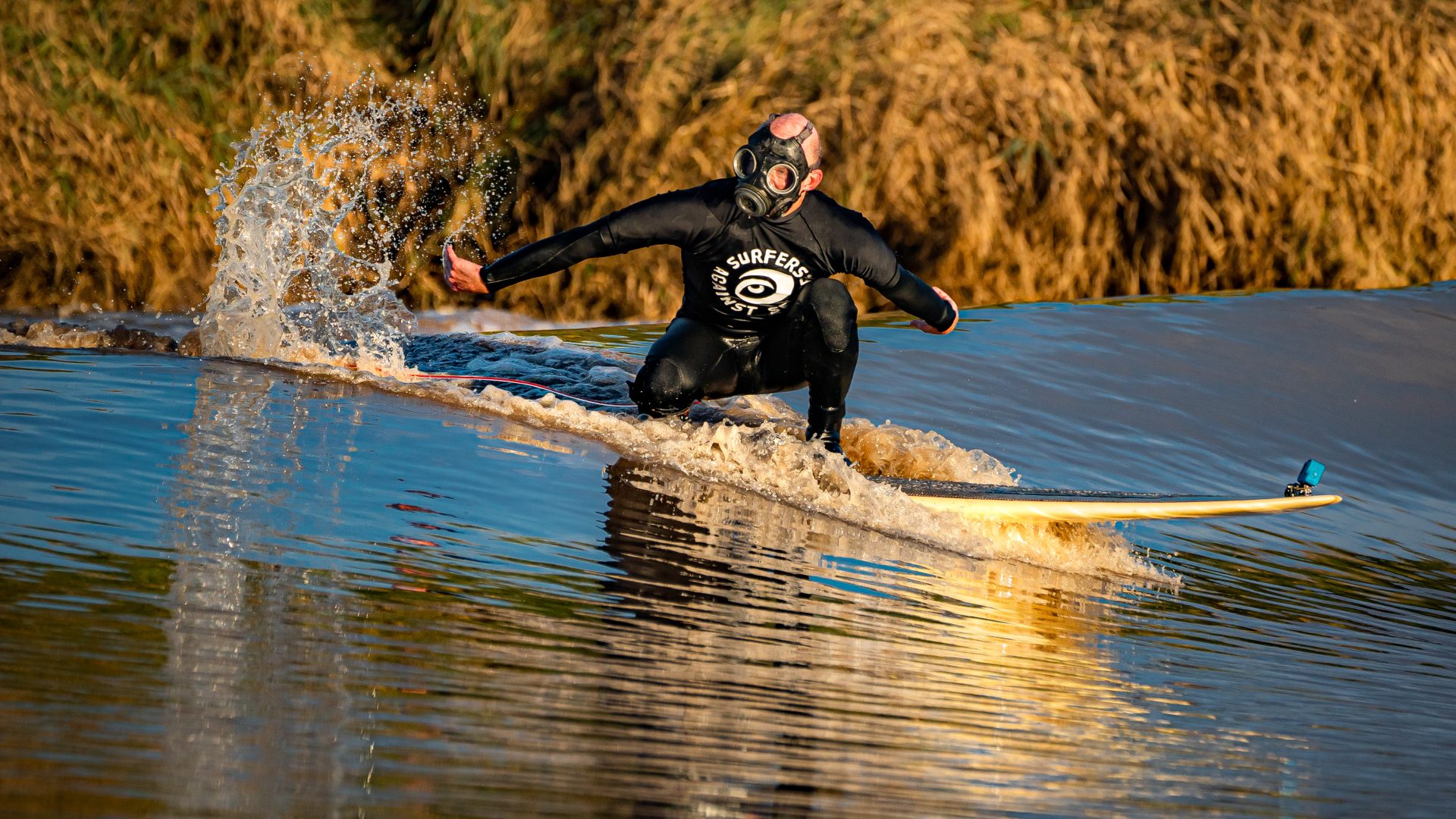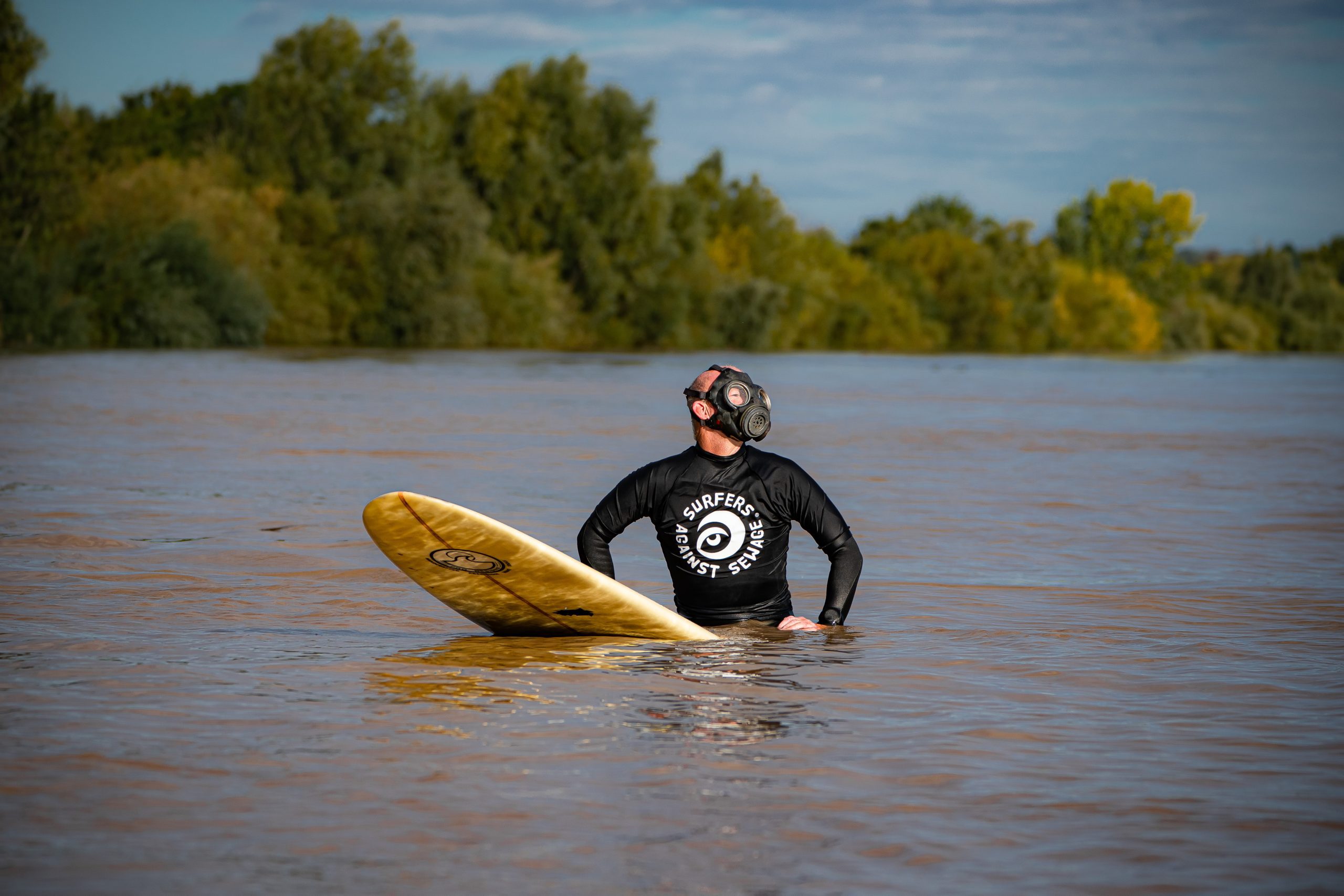
Parliamentary Committee slams governments, water companies and regulators for turning blind eye to river pollution.

Today, the Environmental Audit Committee (a cross party group of MPs responsible for scrutinising the government on all things environment) has released its report on water quality on rivers. And surprise, surprise its yet more damning proof of water companies’ polluting practices and the chronic failure of government and regulators to protect our precious and fragile coastlines and rivers.
The report is jam packed full of evidence and information but the bottom line is that the water in rivers in England is a ‘dangerous chemical cocktail’ as a result of years of underinvestment and multiple failures in monitoring, governance and enforcement by government, water companies and regulators. This is not a conclusion the Committee has come to lightly, far from it. It is the result of a comprehensive year-long inquiry into our rivers which has taken evidence from water companies, regulators, Ministers and environment groups, including Surfers Against Sewage.
The report firmly points the finger at water companies’ complete contempt to protect and restore the environment (even highlighting several false claims made by water companies throughout the inquiry), as well as the complicit role of Ofwat, the farcical industry regulator, in deprioritising investment in infrastructure improvements.
Commenting on the report, Hugo Tagholm, CEO of Surfers Against Sewage said:
“This report is yet another damning indictment on water companies, further exposing the pollution and polluters destroying our precious blue spaces and the chronic failure of government and regulators to protect these fragile ecosystems. The ongoing sewage scandal has made clear that the public will not accept this environmental vandalism any longer, and so we urge the Government to accept these recommendations in full and to set targets to achieve an end to sewage pollution.
Over 3.1 million hours of sewage pollution were pumped into our rivers and beaches in 2020 alone, clearly indicating that water companies are breaching their permits and that regulation is failing to protect people or planet. These private companies are making vast profits at the expense of the environment – putting the interests of offshore shareholders and chief executives ahead of local communities or our fragile ecosystems.
We are committed to continuing to call out sewage pollution, challenge the water industry and hold polluters to account, and public sentiment is in our corner. Decision makers must listen and act now, or be held to account by an angry and engaged public.”
The committee sets out a range of strong recommendations that we demand the government adopts to improve the quality of our inland and coastal waterways for people and planet. In particular there are three key recommendations that will help drive an end to sewage pollution:
Challenging improvement targets and timescales for the ‘progressive reduction in harm’ from sewage pollution should be set.
The Environment Act did not go as far as we wanted with regards setting reduction targets for sewage discharges and instead focused on reducing the harm caused by these discharges. We now need to hold government to account to the targets they have promised and make sure they are as ambitious as possible and force water companies to ACT NOW.
Regulators should look at limiting water company executive’s bonuses.
We couldn’t agree more. Our 2021 Water Quality Report revealed that water company CEOs were receiving six figure bonuses at the same time companies were routinely dumping sewage into rivers and the ocean, causing huge damage to the environment and putting water users at risk. Instead of coughing up millions to shareholders and chief executives water companies must invest in cleaning up the mess they’ve made.
An urgent review of water companies’ self-monitoring.
This is absolutely vital. For years, water companies have been allowed to self-regulate and self-monitor and this has unsurprisingly led to water companies abusing the system. In 2021, Southern Water were fined £126 million for serial misreporting and the Environment Agency and OFWAT have just launched the largest ever investigation of water company behaviour after water companies admitted they may have illegally released untreated sewage into rivers and waterways.
This review needs to happen right now so we can change the system and ensure that water companies are held to account for the damage they are inflicting on the planet.
This timely report builds on the momentum for change driven by Ocean Activists last year. And as we start 2022 and the government and regulators begin to enact the Environment Bill, they must listen to the calls and recommendations of the report. The public remain outraged at the ongoing sewage scandal and if politicians fail to use this opportunity to act the public will hold them to account.
If you want to dig a bit deeper, below we’ve highlighted some further recommendations from the report that we think are important in the drive for better water quality:
Each Water Company should designate at least one river as a bathing water by 2025.
Whilst bathing river status does not mean water quality will automatically improve or be safe to swim in, it provides the starting point that will provide the evidence and pressure to force polluting industries such as water companies to reduce and eventually stop sewer discharges. The creation of over 600 coastal bathing waters around the UK has led to 98% of these beaches meeting minimum standards, up from just 27% in the 1990s. But despite the explosion in the use of rivers for wild swimming and other water sports over the last few years there is just one official Bathing Water located on a UK river.
This recommendation is a step in the right direction but this would only result in an additional 11 river bathing waters across the UK in the next 3 years – not nearly ambitious enough. We urge government to go even further and set targets to designate 200 river bathing waters by 2030.
Tighten up planning permission for new intensive poultry or other intensive livestock
Agricultural pollution accounts for 40% of water bodies not achieving good status and a major cause of poor water quality. We’ve seen how intensive chicken farming has destroyed precious habitats along the river Wye and other major rivers across the country. We simply must stop allowing industrial agricultural industry development that put such extreme pressure on the environment
Increase funding for the Environment Agency
The Environment Agency has had its budgets slashed by 63%, starving it of funds and hampering monitoring and enforcement. As funding is cut, so is the ability to properly investigate pollution instances and illegal practices and hold polluters to account. The Government must give regulators sufficient funds to get on with their job.
Move toward continuous water quality monitoring
The current water quality testing regime is woefully inadequate and fails to give us a true picture of water quality when we actually want to go swimming, surfing or paddling. Currently, water quality testing is only carried out once a week during 20 weeks in the summer at designated Bathing Waters. And legal loopholes allow some of the worst pollution incidence to be discounted. The report recommends that the Environment Agency investigate and implement technology that can provide real time information of the quality of the water in real time. This would be a game changer is keeping us safe when we want to enjoy the sea and rivers.
Undertake a UK wide survey on emerging pollutants and microplastic in rivers
In our work with the European Centre for Environment and Human Health, we’ve found that those of us that use the water to surf and swim can have up to three time the level of antibiotic resistant bacteria in our gut, causing serious health risks. We also know that microplastics are in the air we breathe and water we drink. And we still don’t know the true impacts of microplastics to human health. We want to see emerging pollutants incorporated into water quality monitoring so we’re pleased the report recognises the urgent need for action to investigate the presence of immerging pollutant in the water
The Full report can be found here.
We have big plans for our fight for clean water this year and action for rivers is firmly in our sights. Make sure you’re an Ocean Activist in the loop by signing up to our mailing list and, if you can, fuel our fight to protect the ocean by joining or donating to our cause.
For the ocean.
